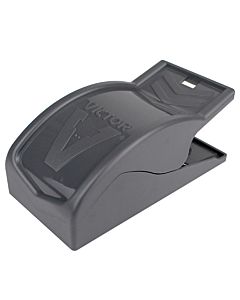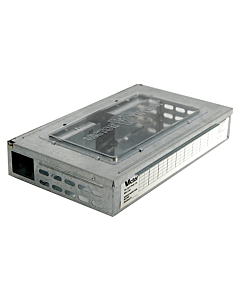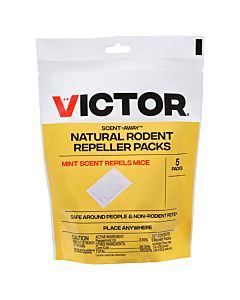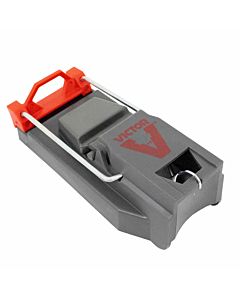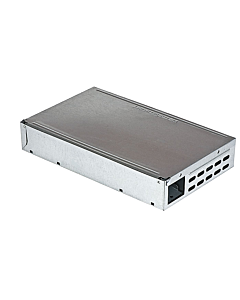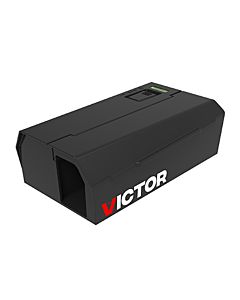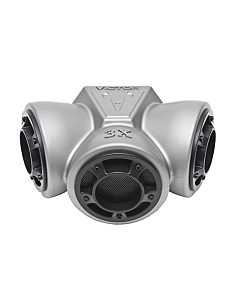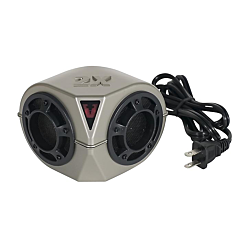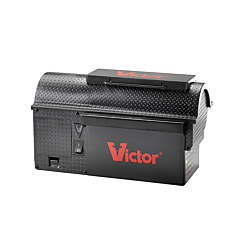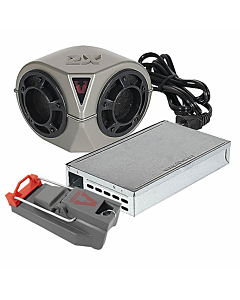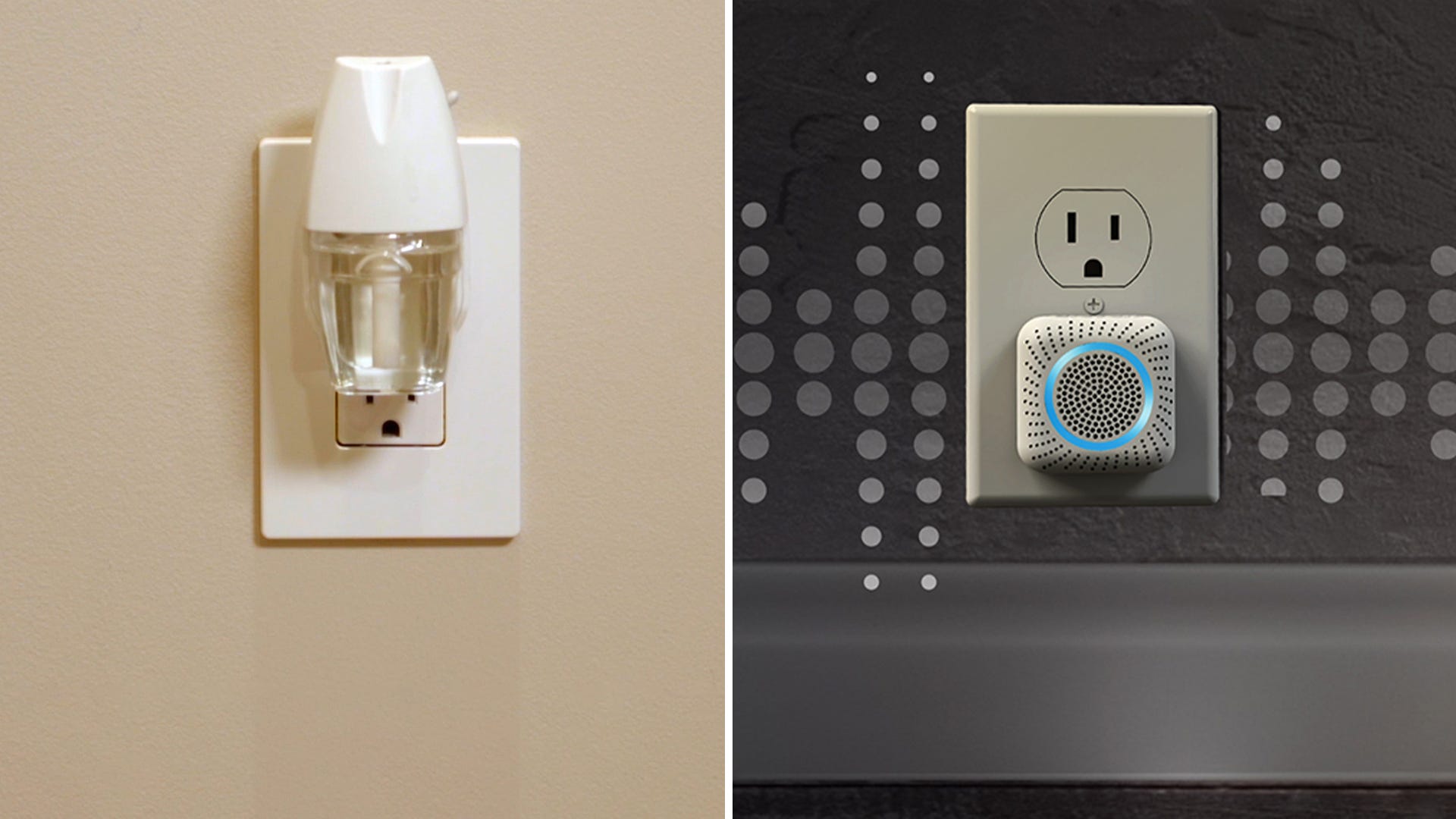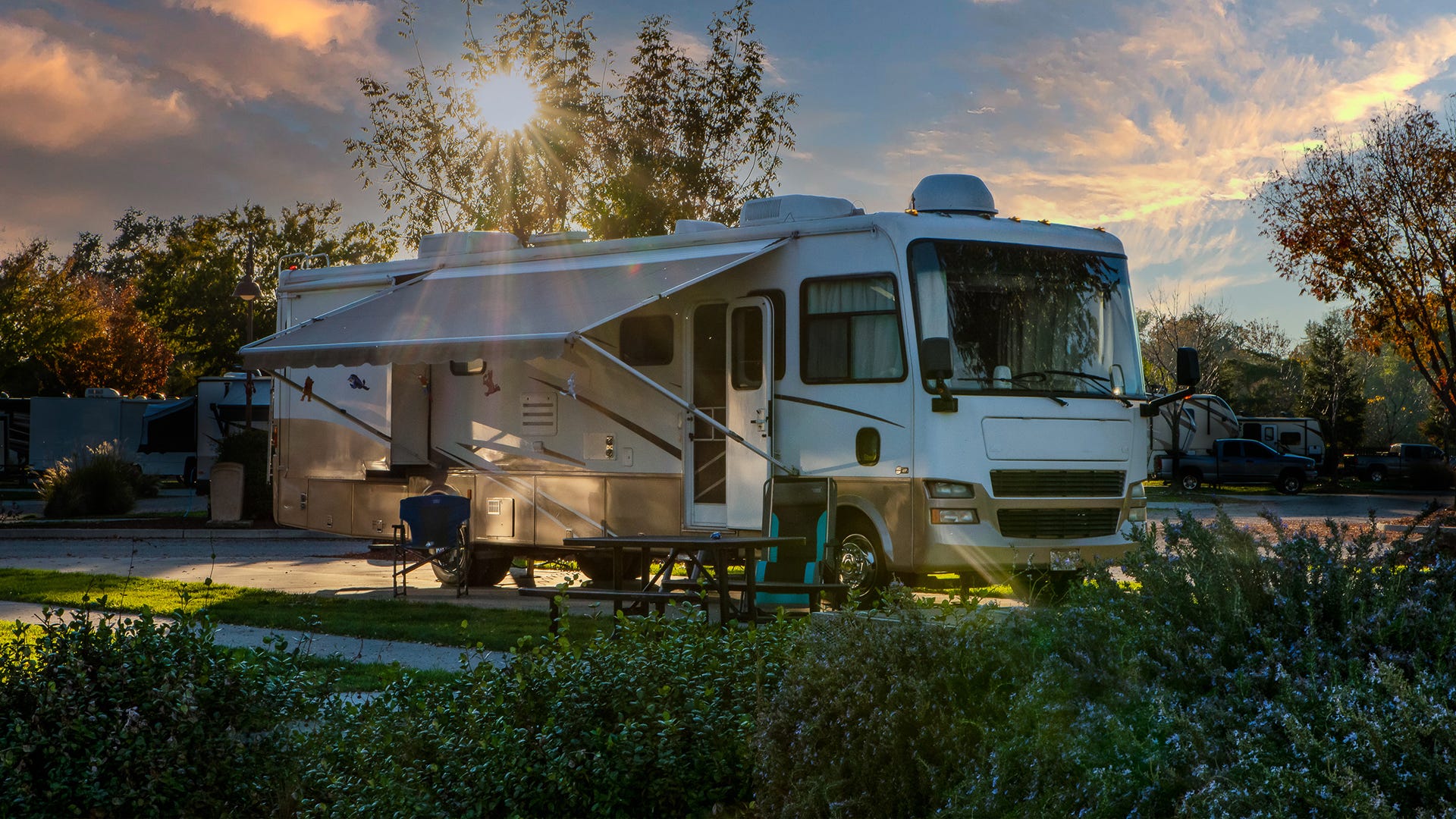
Your RV is your home away from home, taking you on adventures near and far. Flinging open your RV door for the first time each spring is a wonderful feeling, until you start noticing chew marks and mouse droppings. Mice may be tiny, but they can wreak major havoc on the interior of your RV. Taking steps to keep mice out of your RV can get you out on the open road for your next RV adventure much faster.
Mice in Your RV? Fight Back with Victor®
How Mice Get in Your RV
Don’t underestimate the ability of a mouse to get into small openings. You may not notice any obvious holes or gaps, but it doesn’t take a very large hole for mice and other rodents to get inside your RV. A mouse can fit through a hole about the size of a dime, while rats only need a hole the size of a nickel. Even a tiny opening where pipes enter the RV or a skinny gap on the underside of the unit is enough for a mouse to shimmy through to get into your camper. Once inside, the mouse is not likely to leave willingly.
Common places for rodents to enter an RV include:
- Cracks around doors
- Poorly sealed pull-out sections
- Gaps around plumbing or wiring
- Gaps in the floor
- Corners or cracks where walls meet
- Access panels for plumbing, electrical, etc.
Mouse and rodent infestations often occur while your RV is in storage for the winter. For several months of the year, the camper is empty without much activity, making it the perfect spot for rodents to hang out unnoticed. An RV is a warm, cozy place for a mouse to take up residence during the winter months. If you live in a cold climate, rodents have an even bigger incentive to find a warm home and food to survive the winter. Any food left inside an RV is like an all-you-can-eat buffet for the rodent.
Dangers of Having Mice in Your RV
Mice and rodents are more than a minor annoyance for camper owners. They can cause serious damage to your RV – damage that can require some hefty repair costs before your camper is road-ready again. Rodents will chew through almost anything, including upholstery, cushions, wiring, and the plastic and rubber lines that serve crucial functions in your RV. They make nests inside the RV, often using the chewed-up components to build those nests. Not only is it expensive to repair, but all of that damage is a big mess to clean up.
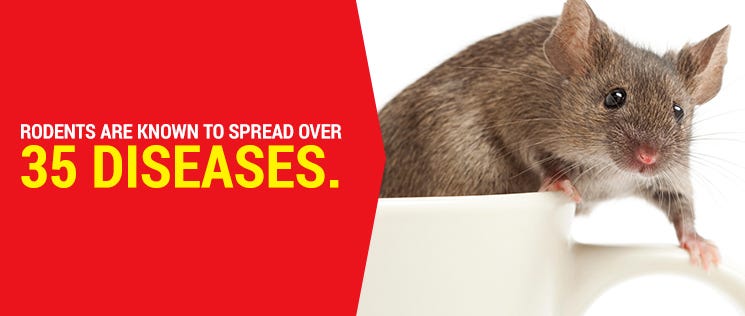
Rodents can also spread disease, which makes the cleanup process potentially dangerous to your health. In fact, they are known to spread over 35 diseases. The last thing you want to worry about when you finally get out in your RV is getting sick. They can also carry parasites, which then get into your RV. By keeping mice out of your RV, you can enjoy your time out in nature without worrying about diseases spread by rodents.
Identifying Entry Points for Mice and Rodents
Keeping rodents away in the first place is the easiest way to protect your RV. By stopping mice and other rodents from ever entering your camper, you eliminate the mess they make and save yourself money on pricey repairs.
RVs typically offer up plenty of little entry points that allow mice to get inside. Finding those points is the first step in keeping mice out. Here are tips for finding those entry points so you can block them to keep mice out:
- Crawl under your RV to spot gaps and holes. Even small gaps are often large enough for mice to fit in.
- Head inside on a sunny day to look for daylight streaming through different parts of the RV. If you can see daylight, mice can find a way in. Another option is to look at night with one person outside shining a light at various areas around the camper and another person inside to look for signs of the light shining through.
- Open drawers, cabinets and closets to look for signs of sunlight.
- Look in corners and along edges for gaps.
- Focus on areas where plumbing and wiring come into the RV’s living area. Any gaps around them is space enough for mice to squeeze through.
- Check the seals on any slide-out areas on the RV. If the seal is not secure, mice and rodents could get in through this area.
- If your RV bathroom or other areas have access panels, remove them to look inside for potential entry points.
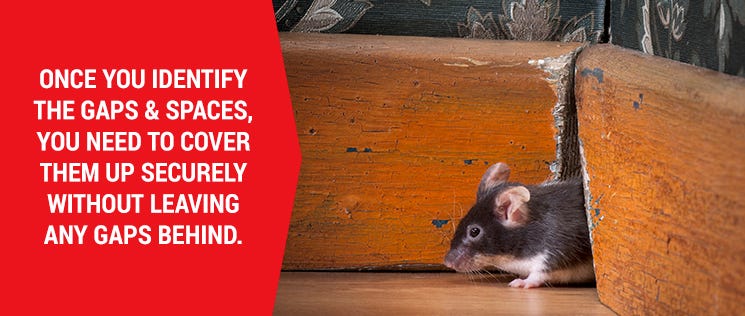
Once you identify the gaps and spaces, you need to seal them. Expanding spray foam is an easy solution. The product expands as it dries, quickly filling the entire space. Experiment with the foam if you have never used it before to ensure you don’t use too much. Be aware the expanding foam could cause damage to the RV if you overdo it.
Silicone caulk is another effective way to seal up small cracks or gaps. Thin pieces of wood or sheets of metal can also work to cover some gaps and holes, depending on the location.
Winter Storage Tips for Campers to Keep Mice Away
Since winter is often the time when mice enter an RV, making some changes to your storage routine can help prevent an infestation. While mice can find their way into an RV no matter where it is parked, there is an increased chance if you store the camper outdoors near fields or open areas. If possible, park the RV on a hard surface away from grassy or wooded areas.
Before you store your RV for the winter, clean out any food sources that could attract rodents. That includes dried food items, condiments and other items that would otherwise be fine all winter long in the camper. They serve as a source of food for all those mice seeking refuge in the winter. Even if you store the food in plastic bins, the rodents will find a way to chew through the containers to reach the food. The containers may slow the mice down a little, but they will not stop them completely.
Clean out your camper well to remove any food remnants or crumbs. Any remaining crumbs or debris may attract rodents to your RV.
Check on your RV regularly while it is in storage, if possible. If you store your RV at a storage facility, you won’t likely have a chance to check it very often. If you store it at home, walk through the RV when possible to look for signs of a rodent infestation. Starting up the engine on a motorhome-style RV can help scare away rodents who try to make a home in the engine compartment.
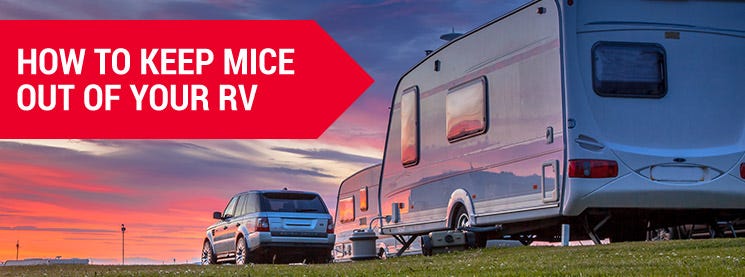
Repelling Mice and Other Rodents
Mice may still try to seek refuge in your RV even if you clean it thoroughly and patch up the holes and gaps that you spot. That does not mean you just have to accept the invasion and subsequent damage. Repelling products can be a last line of defense in keeping your RV rodent- and damage-free.
Peppermint oil is a simple product that can protect your RV, because rodents do not like the scent. They find it unpleasant, which causes them to avoid it. The bonus for using peppermint oil is it’s generally considered a pleasant scent to most people. It is safe and natural, so you do not have to worry about your pets or kids getting into it.
Peppermint oil can be quite messy, particularly in hard-to-reach areas of your RV, such as tight corners or tiny cupboards. An easy solution is to use Victor® Scent-Away™ Natural Rodent Repeller Packs™. The peppermint oil is infused in small granules, which are kept inside permeable mesh pouches. Simply place the pouches in cupboards, drawers and other areas in your camper for up to 30 days of mouse-repelling scent. When you’re making your regular check on your camper, take time to replace the pouches each month to make sure they are effective.
How to Tell if You Have a Mouse Infestation
Identifying a mouse infestation early can prevent damage that is more extensive. How do you know when mice have made your RV their home?
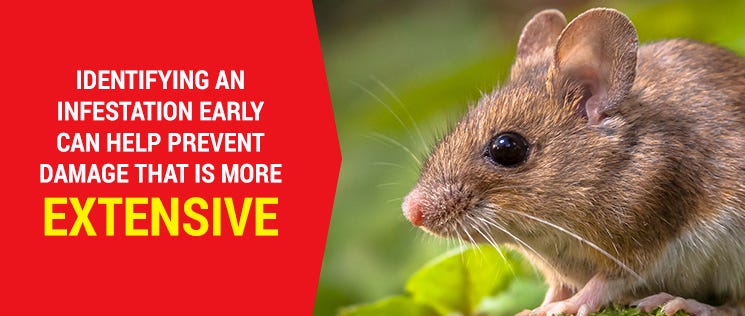
Here are some signs that indicate a mouse or rodent problem:
- Mouse Droppings: Where there are mice, there are sure to be droppings. Look along the walls, in drawers and in cabinets for mouse droppings if you don’t see obvious piles when you enter.
- Holes: When mice get into your RV, they are likely going to chew through things. Be sure to inspect the mattresses and bedding in the RV to see if you spot holes or chew marks from rodents.
- Chewed Food: If you leave food in your RV, inspect the packaging. Mice are likely to chew through the packages to reach the food inside.
- Natural Food: Rodents may bring natural food sources inside the RV. If you notice anything out of the ordinary inside your RV, you could have a rodent problem.
- Nests: Once rodents decide to take up residence in your RV, they will likely make nests to stay cozy. Look for nests in the RV, particularly around bedding and mattresses.
What to Do if Your RV Has a Rodent Infestation
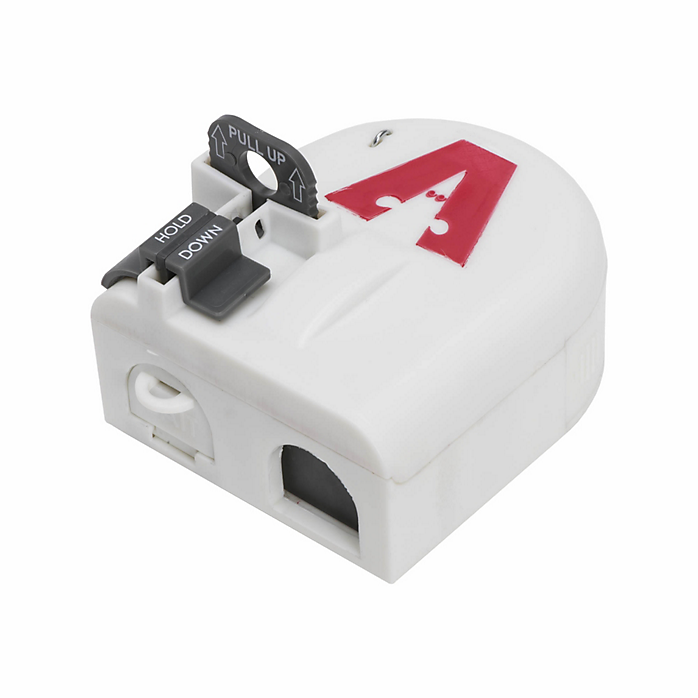 If mice get in despite your best efforts or before you have a chance to seal up the RV, take care of the situation immediately. Waiting gives the rodents more time to cause damage in your RV. Use traps to remove the active infestation. Victor® Kill Vault™ mouse traps offer a hygienic solution to get rid of the mice quickly without a mess. The trap humanely kills the mouse and seals it inside the trap, along with parasites, urine, feces and blood to reduce your exposure. You don’t have to mess with seeing or picking up the dead rodent yourself since it is sealed inside the trap.
If mice get in despite your best efforts or before you have a chance to seal up the RV, take care of the situation immediately. Waiting gives the rodents more time to cause damage in your RV. Use traps to remove the active infestation. Victor® Kill Vault™ mouse traps offer a hygienic solution to get rid of the mice quickly without a mess. The trap humanely kills the mouse and seals it inside the trap, along with parasites, urine, feces and blood to reduce your exposure. You don’t have to mess with seeing or picking up the dead rodent yourself since it is sealed inside the trap.
You also need to do a little more investigation into where the mice are entering the RV. If you already looked for gaps and thought you got them all, do another thorough inspection to find potential entry points you missed. Setting up traps throughout the RV can help narrow down the locations of the gaps. If most mice end up in traps in a particular part of the camper, such as the bathroom, focus on that area when looking for the entry points.
After about a week of no new mice in your traps, you can reasonably assume the infestation is over and you found and sealed the entry points. Waiting a week also ensures any viruses in rodent urine and droppings inside the camper are no longer infectious, so you can safely clean up the camper.
Steps to follow while cleaning campers to reduce risk of disease or health issues:
- Open the windows for 30 minutes to air out the RV before entering.
- Put on rubber or latex gloves before going near the droppings or urine to keep any potential pathogens off your skin.
- Apply disinfectant or a solution of one part bleach to 10 parts water on any droppings and urine. Wait five minutes before cleaning up the mess.
- Pick up the droppings with a paper towel. Dispose of the paper towel in a trash bag you can seal.
- Spray nests or dead rodents with disinfectant or the bleach solution. Wait 5 minutes.
- Use a paper towel or rag to pick up the nesting materials or dead rodent, and seal it inside a bag. Place that bag in a second bag for an extra layer of protection.
- Disinfect all hard surfaces in the RV, particularly those areas with evidence of rodent activity, including countertops, floors, drawers and cupboards.
- Steam-clean upholstered or carpeted surfaces.
- Wash bedding and other removable fabrics in hot water.
When you are finished cleaning, carefully remove gloves to avoid touching the outer surfaces with bare skin. Thoroughly wash hands with hot water and soap.
Once the camper is clean, you can assess any damage done by the mice. In some cases, it could be as easy as replacing bedding or mattresses. In other cases, you may need professional repair services to fix damaged wiring, hoses or other parts.

